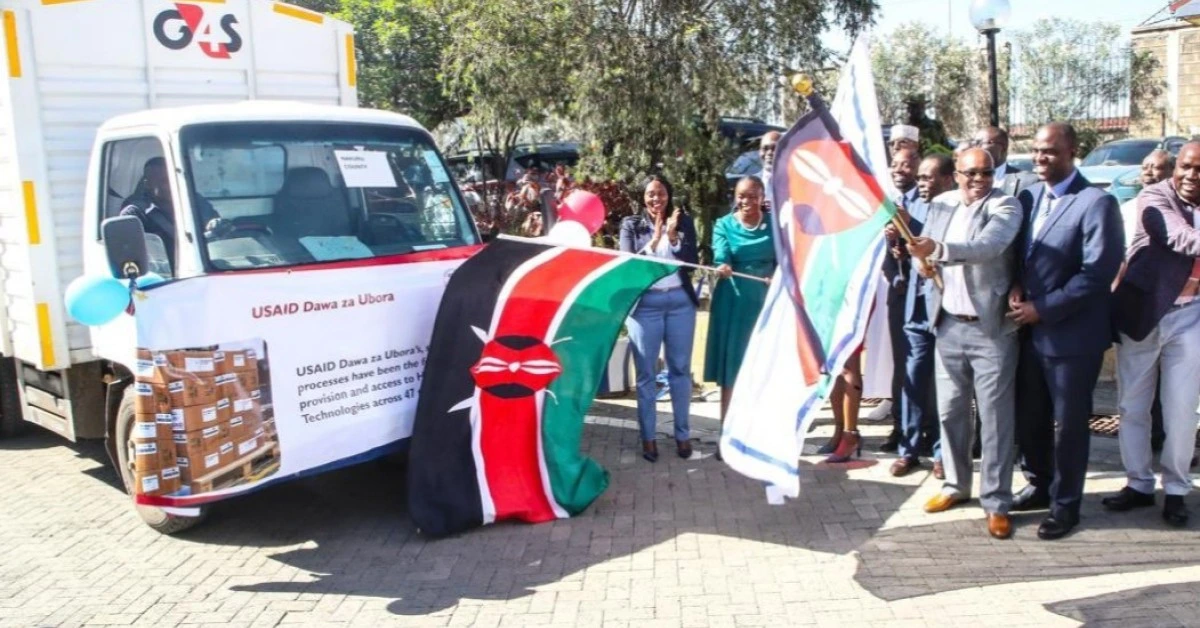
KENYA – Eleven leading Kenyan health and development organizations have received a combined Sh42 billion (US $324.3 million) from the US Embassy in Nairobi, a crucial lifeline amid the ongoing funding challenges created by the shutdown of the US Agency for International Development (USAID).
The disbursement, outlined in an official memo to the US Congress dated March 21, 2025, by Ryan Shrum, Senior Advisor for Legislative and Congressional Affairs, comes at a time when many of these institutions were facing the grim prospect of halting services due to the prolonged freeze in US support.
The funding is targeted at bolstering Kenya’s healthcare and development initiatives by providing critical financial relief that will help maintain vital services across the country.
Among the key beneficiaries are organizations integral to Kenya’s public health system and development efforts.
Notable recipients include the Program for Appropriate Technology in Health, which secured the largest portion of Sh7.5 billion; LVCT Health, which received Sh6 billion; and Deloitte & Touche LLP, allocated Sh5.2 billion.
Moi Teaching and Referral Hospital was also a major beneficiary with an infusion of Sh5.1 billion. Other recipients include the Mission for Essential Drugs and Supplies (MEDS) with Sh3.8 billion, Amref with Sh3.6 billion, and Moi University College of Health Sciences with Sh3.2 billion.
Additionally, Moi Teaching and Referral Hospital branches in Bungoma and Busia received Sh2.9 billion, while the Christian Health Association of Kenya got Sh2.6 billion, Centre for Health Solutions – Kenya (CHS) was granted Sh1.3 billion, and St John’s Community Centre in Pumwani received Sh950 million.
This substantial funding injection comes at a time when Kenya’s health sector is under considerable pressure.
Out of the Sh80.5 billion required for national health programs, approximately Sh24.9 billion traditionally originates from the US government.
The current funding freeze, which emerged from controversial attempts by the Trump administration to dismantle USAID, threatened to disrupt services across various critical areas such as HIV, tuberculosis, and other public health interventions.
Although a US federal judge initially halted these drastic moves in February—citing constitutional concerns—the matter remained contentious.
Judge Theodore Chuang’s criticism of the actions, led by Elon Musk’s Department for Government Efficiency (DOGE), highlighted the deep-rooted issues within US trade and aid policies.
Further judicial intervention in March ordered the government to compensate USAID partners for work already completed, underscoring the sensitivity of the situation.
However, a subsequent ruling by a US federal appeals court permitted the aid cuts to proceed, complicating the financial landscape for US-supported programs.
Kenya’s Ministry of Health has documented the severe repercussions of these funding interruptions in its “Impact of the United States Government Stop Work Order” report.
This document outlines how vital programs managed by agencies such as PEPFAR, USAID, and the CDC have been disrupted, rolling back years of progress in combating public health challenges.
XRP HEALTHCARE L.L.C | License Number: 2312867.01 | Dubai | © Copyright 2025 | All Rights Reserved